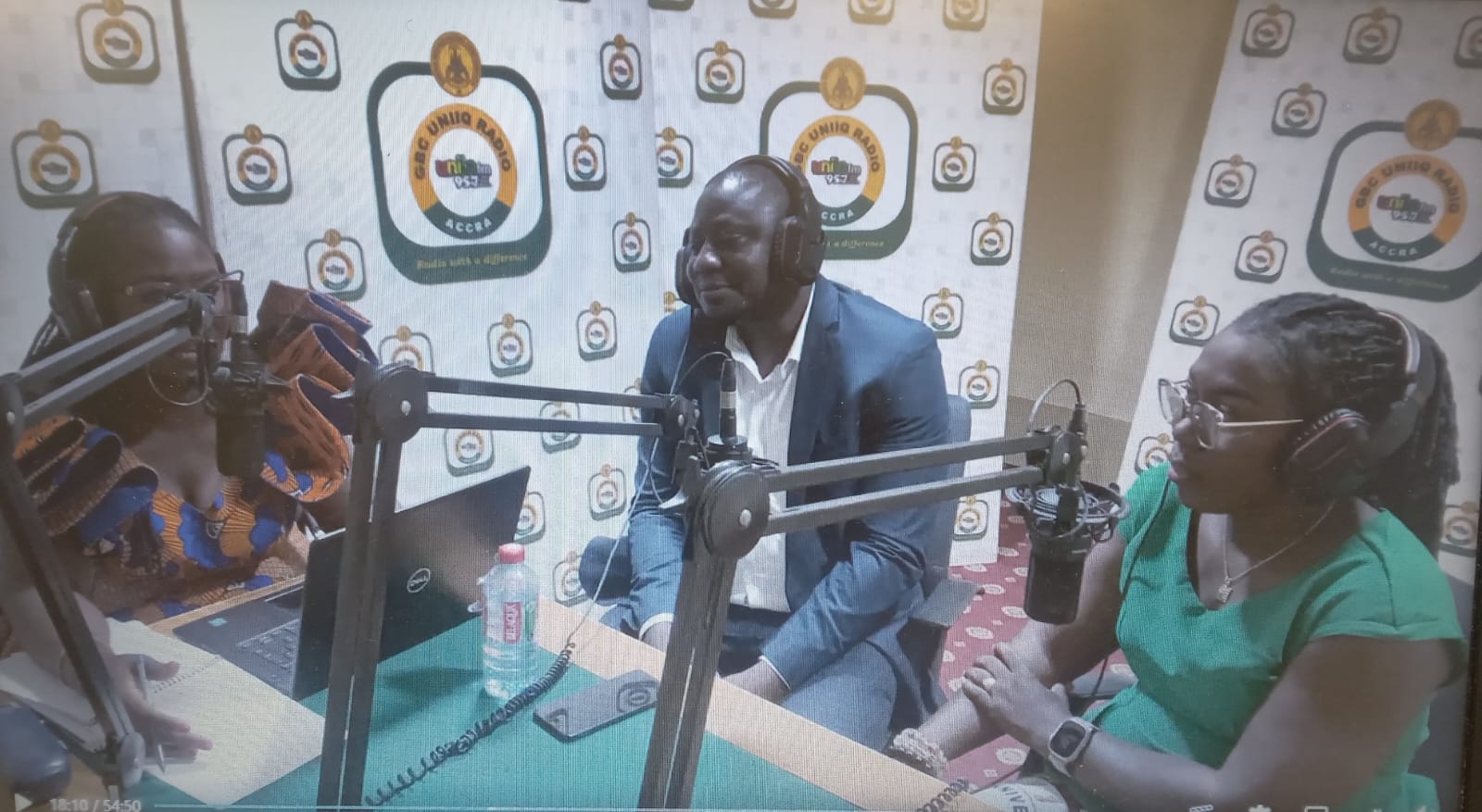By WILFRED CLARKE
This year’s World Radio Day celebration slated for the 13th of February 2025 by U.N.E.S.C.O has been themed as ‘RADIO AND CLIMATE CHANGE’.
Using the Drive-Time Show on the 6th of February 2025 by Ghana Broadcasting Corporation’s Unique FM to promote and propagate the Climate-Change agenda ahead of this year’s thematic World Radio Day celebrations, was indeed a great example as a national broadcaster setting the pace while in charge.
Adjoa Isaka, the anchor of the show together with her astute panel members, rightfully discussed the issues and elements pertinent to the challenges facing the global climate story. As well as how radio could be used to harness the dissemination of information by reaching audience in Ghana and across the globe.
Scientifically and statistically speaking on the show, Mr Eric Kofi Afornorpe, an Environmental Science candidate and a climate expert said: “Climate Change is a very critical issue in the 21st century.
“Beginning from the 20th century, due to the industrial revolution, temperatures have increased, rainfall patten has changed. It is either scanty or too intensive when it rains.
“After raining, there will be a lot of flooding. And these are the changes that happen in climatic conditions such as the wind, rainfall, sunshine and humidity.
“In our development space, a Climate Change is more like a program or an issue of litigation: how do we take action with response to combat Climate Change or how do we take actions in reducing the global emissions causing the Climate Change.”
In his crucial explanation, he reiterated: “The whole thing hovers around the rising temperature or the warming of the earth and this is what we call global warming.
“And global warming occurs when a lot of radiant energy from the sun reaches the earth and about to escape and being shielded by carbon dioxide or green house gases. And when this changes, everything else changes.”
Sitting in on behalf of the citizenry while making her point clear, lady Alice Azu, a Procurement Consultant Officer added: “My understanding is that, the human activities that we undertake are the results or consequences of the Climate Change.”
Talking of deforestation without afforestation in Ghana, she opined: “We are cutting down our trees, so how would the trees absorb the heat from the sun.
“The heat will not be able to evaporate into the air, thereby disturbing and worrying us and also destroying our environment. So, if we do not mitigate our activities, our activities will start to bite us as we are experiencing with the Climate Change. The impact is against our health, our lives and our future.
“Last year some part of the Northern and Bono Ahafo area had some serious drought and I think this is a practical result of the Climate Change, losing some foodstuff as a consequence. And when the rain started falling, places were being flooded.” She concluded.
In solving the issue of Climate Change Mr Afornorpe and lady Alice seem to believe in some factors, namely Mitigation and Adaptation.
Having taken those factors into consideration, what about taking a critical look at countries that are not following ‘The Montreal Protocol’ as well as nations that are not adhering to ‘The Kigali Accord’.
Actions to reduce the emission is paramount in the equations of the solution if ‘Refrigerant Management is properly checked and adapted by most countries if not all countries.
If On-Shore Wind energy could be turbined based, like in Norway and if the culture of the world’s Agriculture production could consider a Plant-Based Food.
All things being equal, if all these measures are strictly adhered to with regards to the culture of recycling and the usage of renewable energy, the result will be clear.
To spread the word in the remotest part of the country, Community Radio Stations and Rural Information Centres would have to be involved in targeting and tackling this situation head on. Most especially within Ghana and across the Africa region as a whole.
Going Off Fossil Fuel completely in Africa at the moment is somehow difficult without funding, due to the financial difficulties it will bring in its wake. In its implementation, some or most citizens will have to forgo so much, in terms of money in order to make up for the usage of electric energy.
To push ‘The Climate Change’ and its related ‘Global Warming’ Agenda forward and across the world, a concerted effort from the world’s Multimedia and Cross-media channels, together with Bloggers and Vloggers, should be telling the narrative with empathy and facts in the right educational direction and perspective.






